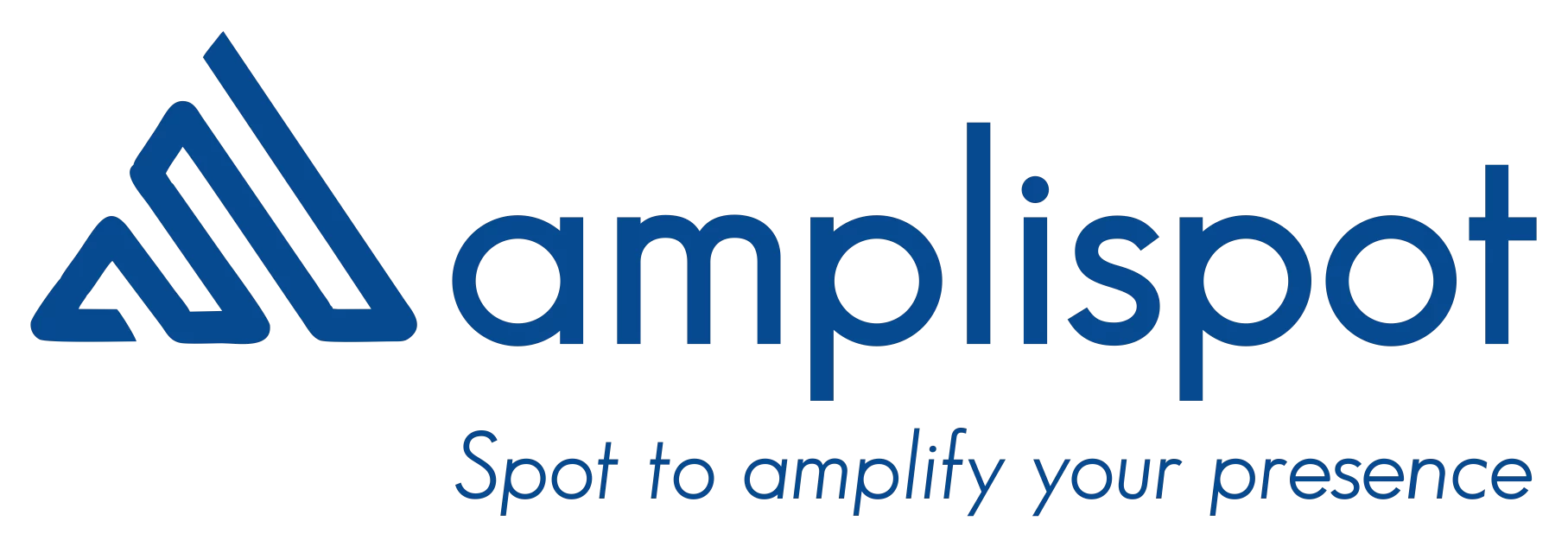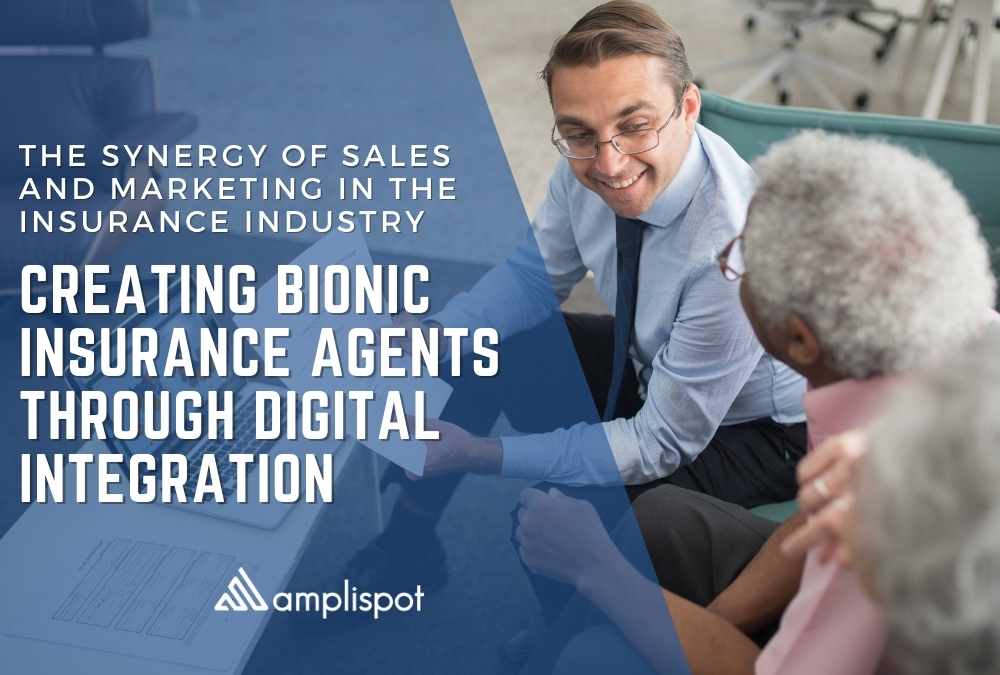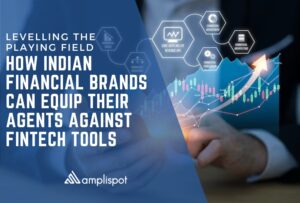In the competitive landscape of the insurance industry, strategic synergy between sales and marketing teams is essential. This collaboration is pivotal for navigating the complexities of an evolving digital era and shifting consumer behaviors.
Understanding the Sales-Marketing Synergy
In the highly competitive insurance market, the alignment between sales and marketing has never been more crucial. This section delves into the profound connection between these two functions and explores how their synergy can create a formidable advantage in the insurance industry.
Sales-Marketing Alignment in Insurance
Creating a Strategic Alliance:
The partnership between sales and marketing goes beyond mere cooperation—it’s about forming a strategic alliance. This union is not just about sharing office space or company events; it’s a deep collaboration where both departments share insights, interpret data, and set unified goals. By sharing customer data and insights, sales can inform marketing about what clients are looking for, and marketing can provide sales with the tools and materials to address those needs effectively.
Crafting Customer-Centric Solutions
In the world of insurance, policies are not one-size-fits-all. Sales and marketing teams need to work together to create customized solutions that address the specific needs and pain points of each client. Marketing can utilize data and feedback from sales to tailor their campaigns, ensuring that the messaging resonates with the target audience and speaks directly to their concerns.
Content Marketing as a Conversation Catalyst
Engaging Clients through Strategic Content
In the insurance industry, where products and services can be complex and nuanced, content marketing serves as a vital bridge between insurance providers and clients. By crafting and disseminating informative and engaging content, insurance companies can demystify the intricate details of their offerings and make them more accessible to the average consumer.
Making Complex Topics Approachable
The goal of content marketing in this space is to break down barriers of understanding. For instance, complex policy details can be translated into easy-to-understand articles, infographics can simplify comparisons of different types of coverage, and animated videos can explain the claims process. This approachable content not only educates potential clients but also helps in reducing the intimidation factor associated with purchasing insurance.
Establishing Thought Leadership
Through content that addresses common questions and concerns, insurance companies can position themselves as thought leaders in the industry. This is achieved by publishing white papers, detailed analysis reports, and trend outlooks that provide value and demonstrate a deep understanding of the industry and its challenges.
Effective Strategies for Insurance Sales
Developing Comprehensive Guides
One of the most effective content marketing strategies is the creation of comprehensive guides. These guides serve as roadmaps for clients navigating the insurance landscape and help them understand the best policies for their needs. They can cover various topics, from the basics of life insurance to the complexities of commercial liability.
Sharing Customer Success Stories
Authentic testimonials and success stories are powerful tools for building trust. By sharing how existing clients benefited from their policies, insurance companies can provide social proof and real-life examples of the value they offer. These stories can be shared through various formats, such as blog posts, video interviews, and even podcast episodes.
Interactive Social Media Q&A Sessions
Leveraging social media platforms for interactive Q&A sessions is an innovative way to engage with clients. These sessions can be held live, allowing prospects and clients to have their questions answered in real time by industry experts. Such interactions not only foster a sense of community but also provide immediate value to participants.
Hosting Webinars and Online Workshops
Conducting educational webinars and workshops on pertinent insurance topics is another effective strategy. These events can range from teaching clients how to protect their assets to understanding the impact of recent legislative changes on their coverage. They serve as both a learning opportunity and a platform for initiating sales conversations with engaged participants.
Empowering Insurance Agents with Digital Tools
In the current landscape where digital interaction is a standard, the insurance industry is not left behind. The role of the insurance agent has evolved, with a growing need to incorporate a suite of sophisticated digital tools to remain relevant and effective. This evolution is not just about keeping pace with technology but about harnessing it to enhance service delivery, deepen customer relationships, and streamline operations.
The Digital Imperative
The demand for digital fluency among modern insurance agents has become an imperative rather than a choice. The term ‘bionic’ aptly describes agents who are empowered by digital tools, allowing them to extend their capabilities beyond traditional methods. These tools enable agents to connect with customers who are accustomed to digital platforms for managing many aspects of their lives, including financial services. A strong online presence is no longer a mere advantage; it is essential. It enables agents to meet customers in their digital space, providing convenience and immediacy that today’s insurance clients have come to expect.
This digital transformation involves more than just the adoption of technology; it signifies a shift in approach. Bionic agents are expected to leverage digital tools for enhanced customer profiling, more accurate risk assessment, instant policy quotes, and streamlined claim processing. Such tools can provide agents with detailed customer insights, which can then be used to tailor communications, policies, and services to individual needs.
Building Digital Tools
On the forefront of this digital push are the marketing teams, who play a crucial role in equipping agents with the right tools. One such tool is the creation and maintenance of dynamic websites. These websites are more than digital brochures; they are platforms that provide valuable resources to both existing and potential customers. They are designed to be engaging, informative, and easy to navigate, ensuring that visitors can find the information they need and take the next steps with ease.
Moreover, the content on these websites is carefully curated and SEO-optimized. The goal is to not only attract visitors but also to convert them into leads and, ultimately, customers. This is achieved by creating content that addresses the common questions and concerns of prospects, using keywords that potential clients are likely to use in their online searches, and providing clear, compelling calls-to-action.
In addition to websites, digital business cards have emerged as a vital tool in the agent’s digital arsenal. Unlike traditional business cards, these digital alternatives are versatile and can be shared with a click. They link directly to the agent’s professional profile, contact information, social media platforms, and other online resources. They can be a powerful tool for networking and lead generation, reflecting the agent’s commitment to accessibility and modernity.
In a digital age, these tools collectively enhance the professionalism of agents. They ensure that agents are not only easy to find and contact but also perceived as being at the forefront of their industry. This perception is crucial in building trust with clients who are looking for reliable and forward-thinking insurance partners.
Email Marketing: The Key to Opening Doors
Email marketing goes beyond the dissemination of information; it’s about fostering a connection. For insurance agents, this means using email not just to inform, but to engage. This channel allows for regular touchpoints, which are essential for cultivating leads and nurturing them into long-term client relationships. It’s the consistency and relevance of these touchpoints that can transform a cold lead into an engaged client.
For existing clients, email serves as a medium to continue the conversation post-sale, providing ongoing support and reinforcing their decision to choose a particular agent or policy. It’s a way to check in, offer additional resources, or simply remind them of the agent’s availability for any questions or further assistance.
Creating Impactful Campaigns
When it comes to creating impactful email campaigns, it’s about much more than sending out blanket promotions to a vast audience. The most effective campaigns are thoughtfully crafted, with content that resonates on a personal level. They often involve a mix of informative newsletters, timely policy updates, and messages that are tailored to the client’s unique interests and life events.
Newsletters can be a treasure trove of valuable information, providing insights into the latest industry trends, tips for better coverage, or even stories of how insurance has made a real difference in people’s lives. They keep clients informed and engaged, positioning the agent as a knowledgeable and caring advisor.
Policy updates, on the other hand, ensure clients are aware of the latest products, benefits, or regulatory changes that could impact their coverage. These updates demonstrate an agent’s proactive approach to their clients’ wellbeing and can prompt important discussions about policy adjustments.
Personalized messages, perhaps the most crucial piece of the puzzle, show clients that they are more than just a number. Whether it’s a birthday greeting, a policy anniversary acknowledgment, or a check-in following a major public event or natural disaster, these emails can significantly strengthen the client-agent relationship.
By leveraging data and insights gained from client interactions, agents can segment their email lists and tailor their messaging accordingly. This level of personalization ensures that clients receive content that is relevant and timely, making each communication feel like it was crafted just for them.
The Rise of Bionic Insurance Agents
As the insurance industry strides into a new era, it is witnessing the rise of ‘bionic insurance agents.’ This new breed of agents is revolutionizing the sector by combining their deep-rooted expertise in traditional insurance practices with a suite of advanced digital tools. The result is a hybrid professional capable of delivering services and advice with unprecedented efficiency and personalization.
Bionic Agents – A New Era in Insurance
In this new era, ‘bionic agents’ are setting new standards for client interaction and service delivery. By integrating technological tools, they are able to automate mundane tasks, freeing up valuable time to focus on complex client needs and deliver customized solutions. This integration is not about replacing the human element but enhancing it. The agents retain their irreplaceable personal touch and deep understanding of the nuanced field of insurance, while also harnessing the power of technology to augment their capabilities.
These agents operate at the intersection of personal intuition and data-driven insights. They employ CRM systems to maintain detailed records of client interactions, predictive analytics to foresee client needs, and mobile applications to provide instant service. This potent combination ensures that bionic agents are well-equipped to provide advice that is both timely and tailored to individual client profiles.
Characteristics of Bionic Agents
The defining characteristics of bionic agents lie in their adept use of technology to elevate their role. These agents leverage a variety of digital tools that enable them to conduct sophisticated data analysis, maintain real-time communication with clients, and access a wealth of information on demand. They are proficient in using these tools to interpret complex data sets, draw actionable insights, and stay ahead of industry trends.
Continuous learning and adaptation are at the core of a bionic agent’s ethos. They are lifelong learners, constantly updating their skills and knowledge base to keep pace with technological advancements. This continuous training ensures they can utilize the latest digital tools and data analysis techniques to serve their clients effectively.
Moreover, bionic agents are well-versed in cybersecurity, understanding the importance of protecting client data in a digital world. They implement robust security measures and educate their clients on best practices for data protection, further solidifying trust and confidence.
Integrating Customer Feedback for Continuous Improvement
In today’s customer-centric business environment, integrating customer feedback is a cornerstone for the continuous improvement of marketing and sales strategies in the insurance sector. This feedback is invaluable, as it provides unfiltered insights into what customers truly value, their specific preferences, and the challenges they face with current products and services. By actively listening to their customers, insurance companies can refine their offerings to better meet the evolving needs of the market.
Refining Strategies with Customer Insights
Customer insights gleaned from feedback are not just helpful; they are a gold mine for insurance agencies looking to sharpen their competitive edge. This feedback offers a clear window into the customer’s mind, revealing the effectiveness of marketing messages, the appeal of insurance products, and the quality of the customer service provided. When customer feedback is effectively analyzed and acted upon, it can lead to significant enhancements in marketing approaches, sales techniques, and overall strategy.
For insurance sales strategies, this could mean adjusting communication styles to better address customer concerns or revising product features to align with what customers are seeking. In marketing, feedback might lead to a realignment of campaign themes or the mediums used to reach the audience. For instance, if customers express confusion about certain insurance terms, marketing materials can be adapted to simplify language and include more explanatory content.
Collecting and Implementing Feedback
To tap into these rich insights, insurance companies employ various methods for collecting feedback. Surveys and feedback forms are commonly used, often sent after customer interactions like purchasing a policy or filing a claim. These tools can be fine-tuned to solicit information on specific aspects of the customer experience, allowing companies to gather targeted data.
Social media monitoring is another crucial avenue for feedback collection. Customers often turn to social platforms to express their satisfaction or grievances. By keeping a pulse on these conversations, insurance companies can quickly identify and address emerging issues before they escalate. This real-time feedback is especially valuable in making prompt adjustments to services or rectifying any misunderstandings in the marketplace.
Once collected, this feedback must be systematically integrated into business practices. This involves a cross-departmental effort where insights are shared and discussed, and actionable changes are identified. For product development, customer feedback can influence the design of new insurance products or the modification of existing ones to better match customer needs. In customer service, feedback can highlight areas for staff training or process improvements to enhance the customer experience.
Maximizing Agent Potential through Marketing-Curated Websites
In the digital age, the caliber of an agent’s online presence can be just as important as their in-person interactions. Recognizing this, marketing teams dedicate their expertise to constructing comprehensive websites that not only serve as a digital representation of the agents but also as a central hub where clients and prospects can engage and obtain valuable information.
The Role of Marketing in Agent Websites
Marketing teams are increasingly becoming the architects behind the digital facades of insurance agents. They craft websites that embody the agent’s brand, resonate with the target audience, and provide a seamless user experience. By ensuring that the content is relevant and engaging, marketing professionals help to captivate visitors and encourage them to explore the agent’s services more deeply.
These websites are meticulously designed to serve multiple functions. They are a platform for education, where clients can learn about different insurance options; a resource for existing customers, offering access to policy information and claims assistance; and a gateway for potential clients, presenting a clear path to initiate contact with the agent. Marketing teams use a blend of compelling visuals, intuitive design, and persuasive copywriting to create a virtual space that is both informative and inviting.
Content Strategy Tailored for Agents
A tailored content strategy is central to the effectiveness of these websites. This strategy is multifaceted, including the creation of educational articles that demystify insurance concepts and policies. These articles are designed to address the common questions and concerns that clients may have, positioning the agent as a knowledgeable and helpful advisor.
Client testimonials play a significant role in this strategy, offering social proof and real-life success stories that build credibility and trust. Prospective clients reading these testimonials can relate to the experiences of others, making the benefits of working with the agent more tangible and convincing.
Interactive tools are another element of this strategy, enhancing user engagement and providing practical value. Tools such as coverage calculators, risk assessment quizzes, or live chat features not only assist clients in understanding their insurance needs but also serve as a soft entry point for initiating contact with the agent.
By integrating these elements into a cohesive content strategy, marketing teams ensure that the website addresses customer needs at every stage of the insurance journey—from initial research to policy purchase and beyond. This strategic approach not only elevates the agent’s online presence but also maximizes their potential to attract and retain clients in a competitive digital marketplace.
Leveraging Website Content for Multichannel Engagement
In the realm of insurance, agents are finding it increasingly beneficial to leverage their website content across multiple channels. This strategic repurposing of content amplifies their reach and ensures that their message resonates with a broader audience. By maintaining a consistent message across all platforms, agents can strengthen their brand and reinforce their expertise in the field.
Repurposing Content for Broader Reach
Agents who adeptly repurpose their website content understand that each platform serves a different purpose and reaches a different segment of their audience. The informative articles housed on their websites can be condensed into bite-sized posts for social media, attracting attention with quick, digestible insights. This not only drives traffic back to the full articles on the website but also caters to the social media audience that prefers concise content.
Similarly, educational website content can be transformed into scripts for videos, which can then be shared on platforms like YouTube or embedded into email campaigns. Videos have the distinct advantage of engaging viewers through visual and auditory elements, which can be particularly effective in explaining the more complex aspects of insurance policies.
The content originally created for the website can also be repurposed into downloadable resources, such as e-books or white papers, providing an additional layer of value to clients and positioning the agent as a resourceful expert in their field. These resources can be offered as incentives for signing up to newsletters or for attending webinars and seminars hosted by the agent.
Newsletters as Effective Conversation Starters
Newsletters serve as a direct line of communication between agents and their clients. They are an opportunity to deliver curated content directly to the inboxes of clients and prospects. By including a mix of industry news, policy tips, and updates on insurance products, agents can keep clients informed and engaged.
More than just a news delivery system, these newsletters can be crafted as effective conversation starters. By posing questions, prompting feedback, or inviting readers to in-person events, agents can use newsletters to initiate a dialogue with their clients. This interaction is crucial in building and maintaining relationships, as it encourages clients to reach out and engage in discussions regarding their insurance needs and concerns.
To enhance the effectiveness of newsletters, agents can personalize content to match the interests and life stages of their recipients. For instance, a client who has just started a family might receive content on life insurance or college savings plans, while a business owner might appreciate articles on liability coverage or asset protection.
Enhancing Agent-Client Relationships through Digital Platforms
In the modern insurance landscape, digital platforms are the new frontier for building and maintaining client relationships. These platforms allow for a dynamic interaction between agents and clients, fostering an environment of trust and establishing the agent’s authority in the industry. By leveraging digital channels, agents can consistently demonstrate their expertise and commitment to serving the client’s needs.
Building Trust and Authority
Trust and authority are the twin pillars upon which successful agent-client relationships are built. A well-designed website acts as the cornerstone of an agent’s online presence, showcasing their knowledge and services. By providing comprehensive, accurate, and up-to-date content, agents can educate clients and help them navigate the often-complex world of insurance. This informative approach positions the agent not just as a seller of policies but as a trusted advisor and industry authority.
Diverse content channels such as blogs, social media, and online forums offer additional avenues for agents to share insights and connect with clients. By consistently delivering valuable information across these platforms, agents reinforce their reputation as reliable sources of guidance. This multidimensional online presence is instrumental in building the client’s trust, as they come to rely on the agent for help in making informed insurance decisions.
Continuous Feedback and Adaptation
The digital age has made it easier for agents to solicit and receive feedback from their audience. This feedback is a crucial component of refining an agent’s content and communication strategy. By actively seeking out and listening to client feedback, agents can identify what resonates with their audience, what needs improvement, and what new needs are emerging.
Agents can use tools like online surveys, comment sections, and social media polls to gather this feedback. They can also monitor online reviews and testimonials to understand how clients perceive their services. By evaluating this feedback, agents can adapt their digital content to better serve and engage their audience, ensuring that their messages remain relevant and impactful.
Training and Support for Agents
As digital platforms evolve, so too must the skills of insurance agents. To this end, many insurance companies provide their agents with ongoing training and support in content marketing and digital communication. This training ensures that agents stay abreast of the latest digital marketing trends, understand how to use new tools and platforms, and are equipped to create engaging, effective content.
Support for agents also involves providing them with the necessary resources to implement their digital strategies successfully. This could include access to content management systems, analytics tools to track engagement, and platforms for automating and scheduling content. With this support, agents can focus on what they do best—serving their clients—while also expanding their digital footprint.
The synergy of sales and marketing in the insurance industry, especially through digital integration, is transforming agents into ‘bionic’ advisors. By utilizing marketing-curated websites and repurposing content, agents engage clients more effectively. These strategies foster deeper relationships and position agents as knowledgeable experts. In this digital age, such empowered agents are key to delivering personalized, efficient, and impactful customer experiences, driving the insurance industry’s success and growth.






